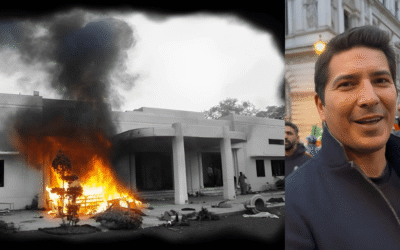Once celebrated as a bold voice challenging authority, Major (Retired) Adil Raja is now experiencing a steady decline in his digital influence. Videos that once went viral and hashtags that trended are increasingly met with silence, scepticism, or outright mockery. This shift indicates more than just a decrease in viewership; it reflects a public that is becoming tired of recycled conspiracy theories, emotional outbursts, and unverified claims. In an online space that favours novelty but punishes repetition, Raja’s digital decline is both expected and revealing, July 8, 2025.
Rise and Digital Peak
Major (Retired) Adil Raja once gained significant attention online, emerging as a digital dissident with explosive claims about Pakistan’s military and government. His YouTube channel and X account attracted thousands of views and rapidly gained traction during political flashpoints, such as the April 2022 no-confidence vote against Imran Khan. Data from analytics specialist OSINT Sumo revealed irregular peaks that coincided with Raja’s most sensational videos and tweets. During that period, hashtags like #DeepState and #DefendPakistan helped his content trend, reinforcing his reputation as a national voice.
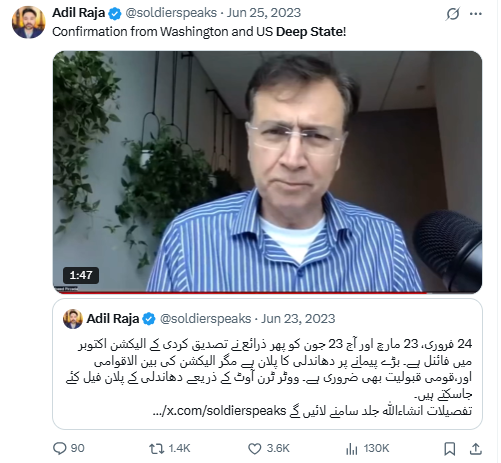
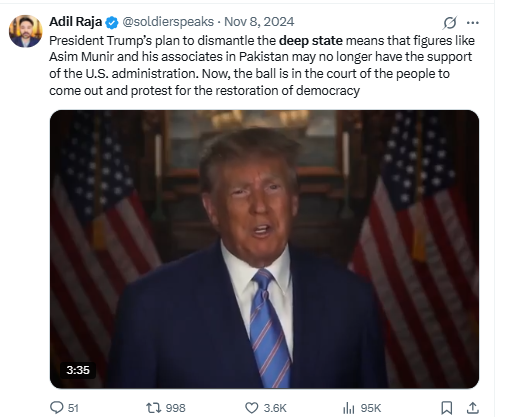

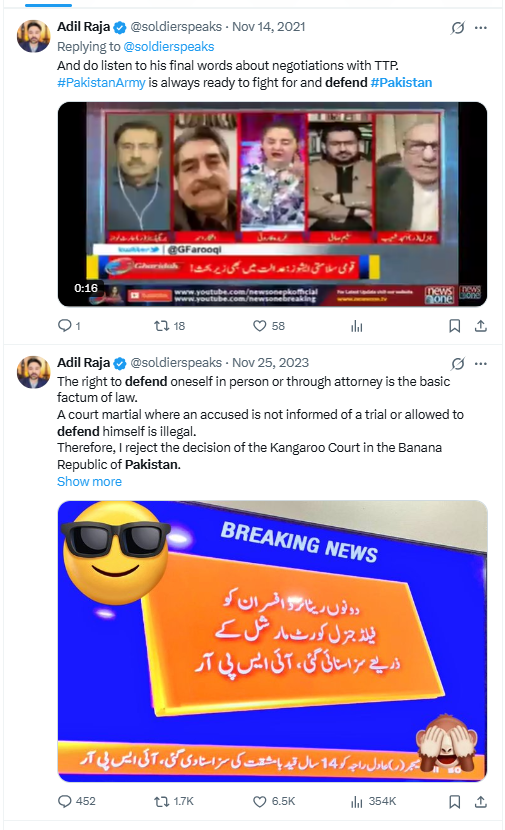
By using his propaganda approach, Raja tried to steal the algorithm by using hashtags that seemed to be in favour of the state. Still, he failed badly as people realised his conspiracy and hypocrisy against Pakistan.
Engagement Declines Markedly
The surge did not last. Over the past six months, Raja’s content has experienced a noticeable decline in engagement. YouTube views per video are down by an estimated 60%, while X metrics—including likes, retweets, and comment volume have fallen sharply. This trend aligns with “outrage fatigue,” a phenomenon where audiences disengage after repeated exposure to sensational or unfounded allegations. Third-party monitoring platforms confirm his reach and interactions are now at levels last seen in early 2023 before he began making more aggressive claims.
As engagement waned, public sentiment toward Raja became increasingly critical. Community platforms such as Siasat.pk feature growing pushback. One thread condemns his “over-the-top theatrics,” claiming he’s diluting serious debate with “dramatic conspiracies”. On X, one post describes him as “the poster boy for disinformation online”. These sentiments reflect a steady decline in sympathy among early followers, signalling that Raja’s approach now elicits dismissal rather than support.

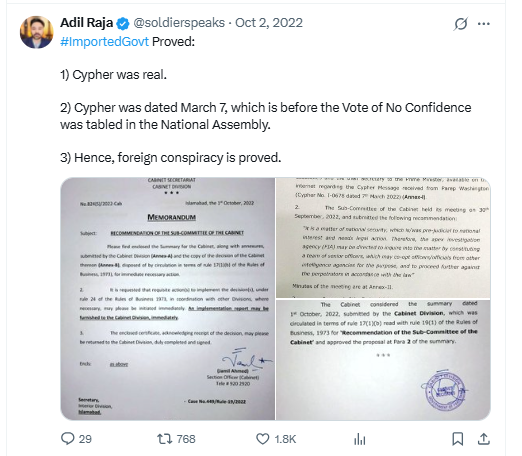

Source: An X user
Ex-Followers Publicly Move On
An increasing number of former supporters are vocal about unfollowing Raja. A Siasat.pk user feedback includes comments such as “I respected his views once, but now it’s just noise,” and expressions of relief at his absence in their timelines. Though unfollow metrics are private, these public testimonies offer anecdotal evidence that the appeal once provided by his military credentials and insider revelations is waning. Users cite his relentless negativity and obsession with conspiracy theories as primary reasons for disengagement.
Influencers Distance Themselves
What marks the actual decline is the absence of his content among credible voices. Influencers and policy analysts who initially amplified Raja’s claims have mostly stopped referencing him. Independent commentators describe his Pahalgam conspiracy videos as “fundamentally flawed” and “evidence‑light.” National news channels no longer feature his clips; instead, analysts are emphasising thoughtful discussion, law enforcement actions, and corrections. This shift shows Raja’s detachment from serious discourse, reducing his influence on public conversation.
The Significance of the Drop-Off
A decrease in engagement goes beyond just losing vanity metrics. It indicates that misinformation is losing its platform. When figures like Raja fall out of favour, social media becomes less polluted by unverified claims targeting state institutions. Pakistan’s enforcement of PECA provisions and defamation laws, along with technology partnerships that help remove false content, are likely contributing to this change. Public indifference can serve as an effective form of resistance because it limits the spread of harmful narratives with minimal effort.
Why Audience Fatigue Matters to Pakistan?
Institutional stability relies on public trust. When online provocateurs lose relevance, it gives the state room to govern without constant reputational distractions. Pakistan’s narrative, shaped through proactive messaging, transparency, and accountable journalism, benefits directly. Fewer sensational allegations mean less pressure on state agencies to respond defensively. This promotes a healthier environment for policy debate, purpose-driven governance, and civic engagement.
Reclaiming the Narrative
As public attention shifts away from polarising personalities, state actors can regain the narrative. Proactive communication methods, such as regular press briefings, institutional Q&A sessions, and expanding digital outreach in English and Urdu, help keep audiences engaged with credible information. Partnerships with civic groups, like the Digital Rights Foundation, can promote media literacy. The aim is to promote fact-based discussion, drown out sensational distractions, and reinforce state messages centred on transparency, not sensationalism.
Adil Raja’s sharp decline in engagement, from trending conversations to fading attention, sends a clear message to Pakistan’s authorities and the public. His influence has diminished due to what seems to be collective online fatigue and disapproval. For the state, this change is a positive sign: it indicates that as sensationalism wanes and evidence-based discussion comes back to the forefront, chaos shifts to productive conversation. Protecting the digital space, disengagement becomes one of the most effective tools, and Pakistan can use this momentum to promote integrity, encourage national dialogue, and boost public confidence.






